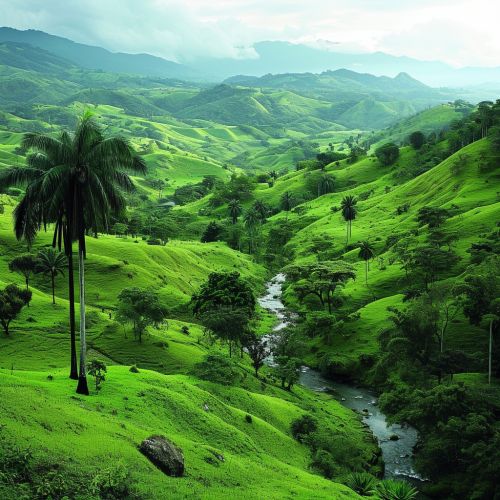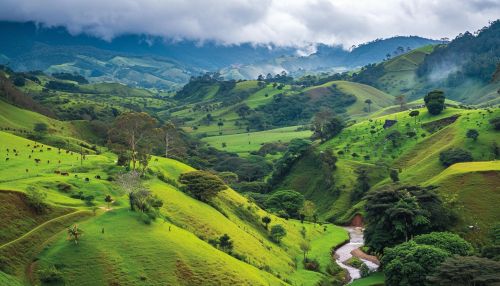History of Colombia
Pre-Columbian era
The history of Colombia begins with the evidence of human habitation in Colombia that dates back to approximately 20,000 BC. The indigenous cultures that inhabited the region left behind a rich legacy of art, culture, and architectural marvels. The Tairona and the Muisca were two of the most advanced civilizations in pre-Columbian South America, with the Muisca being known for their gold work and the Tairona for their city planning.


Spanish conquest and colonization
The Spanish first arrived in Colombia in 1499, led by explorer Alonso de Ojeda. The Spanish conquest of the indigenous peoples began in earnest in the early 16th century. The Spanish established the New Kingdom of Granada, which included modern-day Colombia, Ecuador, Panama, and Venezuela. The Spanish imposed their language, religion, and customs on the indigenous population, leading to significant cultural changes.
Independence
The struggle for independence from Spanish rule began in the early 19th century, led by figures such as Simon Bolivar and Francisco de Paula Santander. The Battle of Boyaca in 1819 was a decisive victory for the independence forces, leading to the establishment of the Republic of Colombia.
Modern history
In the 20th century, Colombia experienced significant political and social changes. The period known as "La Violencia" (The Violence) from 1948 to 1958 was marked by a brutal civil war between the Liberal and Conservative parties. The late 20th century was marked by the rise of drug cartels, notably the Medellin Cartel and the Cali Cartel, leading to a period of intense violence and instability.
Current era
In the 21st century, Colombia has made strides in addressing its past issues. The government has made peace with the largest rebel group, the FARC, and has made efforts to address social inequality. However, challenges remain, including ongoing violence and drug trafficking.
